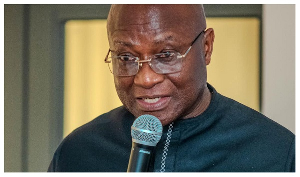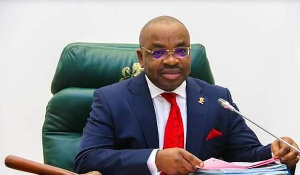As Ghana gears up for its significant December 7th elections, the atmosphere is charged with anticipation, debate, and a heightened sense of civic responsibility.
Elections are pivotal moments in any democracy, determining the leaders who will shape the nation's future. However, in our highly digital age, the challenge of navigating echo chambers—those closed-loop conversations where individuals are only exposed to opinions that mirror their own—has become increasingly daunting. To foster a more informed, engaged, and open-minded electorate, it's crucial to adopt strategies for effective communication before, during, and after the elections.
Before the Elections: Building Inclusive Dialogue:
Diversify Information Sources: Ghanaians should be encouraged to seek news and opinions from a variety of sources. Traditional media, social media, and independent journalism all play roles in presenting a fuller picture. Diversifying media consumption helps counteract the one-sided perspectives often perpetuated by echo chambers.
Promote Civic Education: Civic education initiatives can provide voters with a more comprehensive understanding of the electoral process, the positions of different candidates, and the issues at stake. NGOs, community groups, and educational institutions can facilitate workshops and informational sessions to empower voters.
Encourage Respectful Discussions: Online platforms and community forums should promote respectful and constructive discussions. By setting ground rules for engagement, such as no personal attacks and focusing on issues rather than individuals, the quality of discourse can be significantly improved.
Leverage Influencers for Good: Influencers and thought leaders can play a vital role in broadening perspectives. Encouraging them to engage in balanced debates and share diverse viewpoints can help break down the walls of echo chambers.
During the Elections: Ensuring Transparency and Fairness:
Monitor Misinformation: Real-time fact-checking and monitoring of misinformation are crucial during election periods. Collaborative efforts between tech companies, government bodies, and civil society can help identify and correct false information before it spreads widely.
Facilitate Access to Reliable Information: Providing voters with easy access to reliable and up-to-date information about voting procedures, locations, and candidate profiles helps ensure that they can make informed decisions. Dedicated election websites and hotlines can be instrumental.
Support Peaceful Participation: In the high-stakes environment of elections, maintaining peace and security is paramount. Community leaders and law enforcement should work together to ensure that voters can safely and confidently participate in the electoral process.
After the Elections: Fostering Unity and Accountability:
Promote Acceptance of Results: Once the votes are counted and results announced, it’s vital to encourage acceptance and respect for the democratic process. Leaders, both winning and losing, should advocate for peace and unity.
Engage in Post-Election Analysis: Constructive analyses of the election outcomes can provide insights into the strengths and weaknesses of the political process. Media organizations, think tanks, and academic institutions should lead the way in evaluating the election in a non-partisan manner.
Hold Elected Officials Accountable: The relationship between voters and elected officials should not end on election day. Continuous communication, community engagement, and advocacy are essential to ensuring that leaders are held accountable for their promises and actions.
Strengthen Democratic Institutions:Ongoing efforts to strengthen the transparency, fairness, and efficiency of electoral and democratic institutions are crucial. Reform efforts based on the lessons learned from each election can help improve future processes.
Conclusion:
Navigating the echo chambers of modern political discourse is no easy task. However, by fostering a culture of open-mindedness, respect, and informed engagement, Ghanaians can ensure that their democracy remains robust and vibrant. As the December 7th elections approach, it is a shared responsibility among citizens, media, civil society, and government to promote effective communication and civic participation. Together, these efforts can help Ghana continue to shine as a beacon of democracy on the African continent.
Opinions of Monday, 22 July 2024
Columnist: Godson Bill Ocloo



















